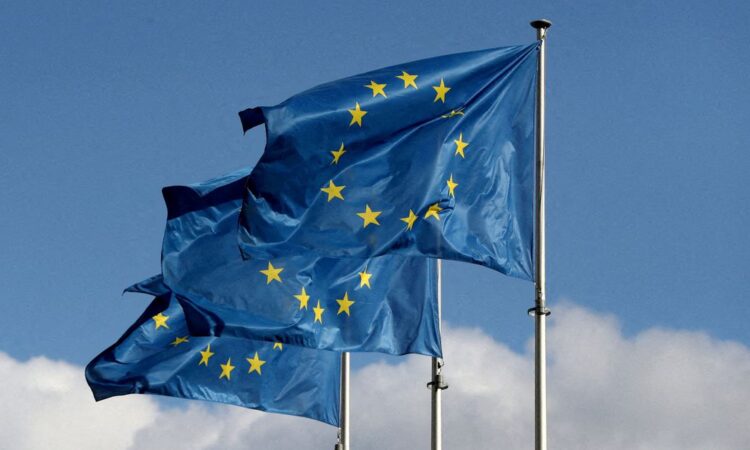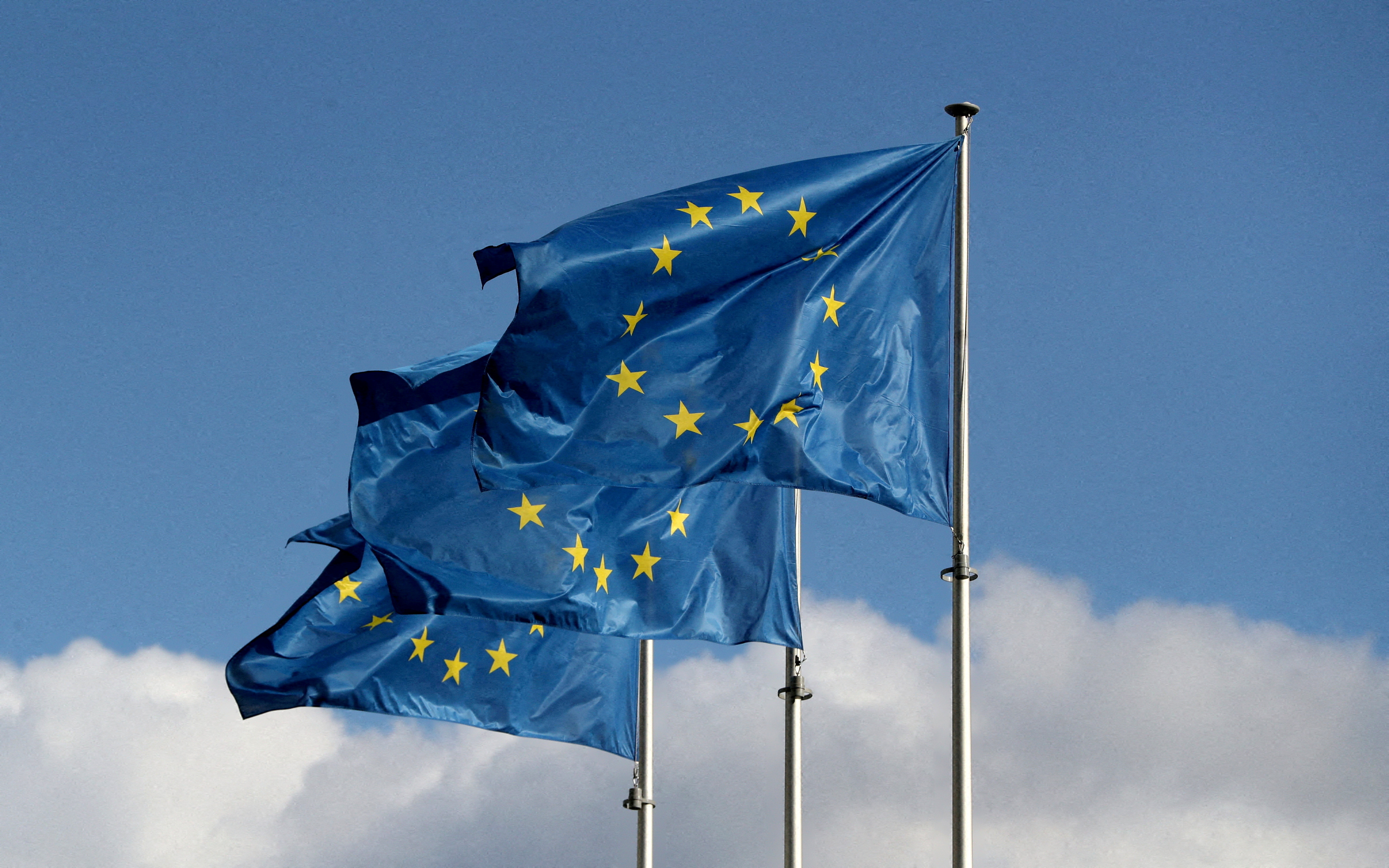

European Union flags fly outside the EU Commission headquarters in Brussels, Belgium September 19, 2019. REUTERS/Yves Herman/File Photo Acquire Licensing Rights
LONDON, Oct 19 (Reuters) – The EU’s lending arm, the European Investment Bank, is lining up a string of “debt-for-climate” swaps where countries from the Caribbean to Africa would get their debt bills cut in return for combating, or adapting to, global warming.
Barbados’ finance minister told Reuters this month that is was working with the EIB on what is likely be the world’s first government debt-for-climate swap, and the head of the EIB’s division involved in it says it won’t be the last.
“On these things, it’s very difficult to predict how fast things will materialise but we’re talking to various countries,” Markus Berndt, head of the EIB’s “global” division that lends outside the European Union told Reuters.
Asked how many he replied: “I don’t think it will be in the double digits, but I hope somewhere in the good single digits”.
Debt-for-climate swaps are an offshoot of the wave of debt-for-nature swaps done in recent years by Ecuador, Belize, Gabon, Seychelles and Barbados.
At their simplest, these swaps see a country’s bonds being bought up and replaced with cheaper ones thanks to “credit guarantees” or “risk insurance” provided by multilateral development banks with top-notch credit ratings.
Some of the savings can then funnelled towards projects that fund conservation efforts or help combat, or cope with, the effects of climate change.
For the EIB, the two types of swaps are being seen as almost interchangeable and could contain both conservation and adaptation elements, as is the case in Barbados where the plan focuses on the country’s water system.
Berndt wouldn’t specify which other countries the EIB was in talks with but highlighted that around half of the 10 billion euros ($10.6 billion) EIB Global lends on average each year goes into Africa.
“There is no regional focus,” he said, likening the debt swap model to a global product. “But given that the importance of Africa for us, yes, it would be weird not to have an African country in there.”
($1 = 0.9463 euros)
Reporting by Marc Jones; editing by Jonathan Oatis
Our Standards: The Thomson Reuters Trust Principles.






